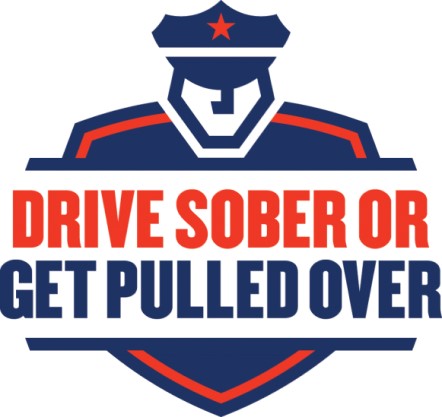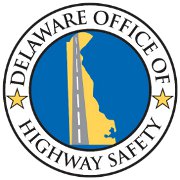
“Drive Sober or Get Pulled Over” Campaign Emphasizes Planning Ahead for a Safer Labor Day
August 20, 2021
THE ANNUAL AWARENESS AND EDUCATIONAL EFFORT OFFER TIPS FOR PREPARING FOR A SAFE HOLIDAY WEEKEND, PLUS A NEW ONLINE TOOL THAT DEMONSTRATES THE VARIOUS DANGERS OF IMPAIRED DRIVING.
DOVER, Del. (Aug. 20, 2021) — Labor Day weekend is historically one of the deadliest times of the year on roadways in Delaware and nationwide. According to the National Highway Traffic Safety Administration (NHTSA), Labor Day weekend typically generates an increase in drunk-driving deaths. During the 2019 holiday, 451 traffic deaths occurred nationwide, with 45% of those involving a driver who had been drinking. During the 2020 Labor Day holiday weekend in Delaware, there were 76 impaired-related crashes, resulting in 46 injuries and five fatalities.
The Delaware Office of Highway Safety (OHS), in partnership with NHTSA, has once again activated the “Drive Sober or Get Pulled Over” impaired-driving campaign with the objective of protecting people from the dangers of impaired driving as they travel on Delaware roadways. The campaign aims to transform risky driving behaviors into responsible actions that can prevent crashes, injuries, and death – as well as fines and other penalties. The campaign and mobilization launched on Wednesday, Aug. 18, and continues through Labor Day, Monday, Sept. 6.
The “Drive Sober or Get Pulled Over” campaign:
- Educates the public on impaired driving laws and the potential consequences of driving while under the influence.
- Demonstrates the dangers of impaired driving through interactive tools — such as OHS’ new “When You Drink and Drive, You’re Not All There” Blood Alcohol Content (BAC) tool.
- Encourages people to plan ahead if they plan on drinking or hosting an event with alcohol to ensure everyone has a safe ride home.
CELEBRATING SUCCESS – AND MAINTAINING IT
“According to NHTSA, one person is killed approximately every 52 minutes in a drunk-driving crash, totaling more than 10,100 lives lost each year,” said Kimberly Chesser, Director, Delaware Office of Highway Safety. “However, in 2019, these numbers reached their lowest percentage since 1982, the year NHTSA first began reporting alcohol data. This demonstrates that we all have the power to change and prevent crashes, injuries, and fatalities. One of the greatest motivations is knowing that your responsible behavior can make a positive impact. This is why, especially during this year’s Labor Day mobilization and campaign, we are working to empower Delawareans to focus on the positive change people can make – and are making – one driver at a time.”
The combination of Labor Day weekend being the unofficial “last hurrah” of the summer season coupled with people longing to get outdoors and socialize after 18 stressful months of the COVID-19 pandemic is a recipe for potential disaster. OHS suggests Delawareans include the “Arrive Alive” strategy as part of their overall holiday planning.
OHS OFFERS THESE TOOLS AND TIPS FOR PLANNING, DRIVING, AND HOSTING RESPONSIBLY:
- Designate and/or “download” your driver. Determine your preferred source for getting a safe ride to and from your destination if you decide to drink.
– Relying on a friend: Connect with them ahead of time to ensure they don’t plan on drinking.
– Using a rideshare service such as Uber, Lyft, or NHTSA’s SaferRide: Download the mobile app (for Android devices and iOS) to your phone before you head out to celebrate.
– Calling a cab: Keep a list of local cab options on your phone. - If you’re serving alcohol, help guests at your gathering get home safely. Party hosts can create a unique rideshare code to offer guests a sober ride home. If that is beyond your budget, make signs listing cab companies with phone numbers and a public transportation schedule to hang in your restroom, on your door, and near your drink station.
- Be a friend. If you see someone drinking too much and/or behaving as if they have, keep them from getting behind the wheel. Take their keys and call them a cab or arrange for a ridesharing option.
- Be in the “smart seat.” If you’re heading out as a driver or passenger, always buckle your seat belt before starting the vehicle. On the road, if you see a vehicle swerving, speeding, going excessively slow, or somehow indicating its driver may be under the influence, pull over immediately and call 9-1-1.
- Be aware of when you’re “not all there.” You can’t trust yourself when you drink. Put the keys away and grab a sober friend, call a taxi, or take public transportation home.
Visit OHS’ new “When You Drink and Drive, You’re Not All There” Blood Alcohol Content (BAC) tool. Use this tool, available in both English and Spanish by activating the language toggle icon, to explore impairing effects on different parts of the body and learn how critical driving skills deteriorate when a person reaches varying levels of blood alcohol concentration (BAC).
IMPAIRED DRIVING STATISTICS FOR DELAWARE
Over the period of five years, from 2016 to 2020, September was the deadliest month of the year on Delaware roadways. 48% of impaired crashes occurred between the hours of 8 p.m. and 2 a.m., with 58% occurring on a Friday, Saturday, or Sunday. In terms of age, 31% of impaired drivers were 20 to 29 years old.
Media Contacts:
AB&C, Jenn Buchman, jbuchman@abccreative.com
DOHS, Veronica Marshall, veronica.marshall@delaware.gov

About the Delaware Office of Highway Safety
The Office of Highway Safety (OHS) is committed to improving the safety of Delaware’s motoring public by focusing on behavioral traffic safety issues, such as impaired driving, seat belt use, speeding, child passenger safety, pedestrian and bicycle safety, motorcycle safety, and teen driving issues. Follow OHS on ArriveAliveDE.com, Facebook, Twitter, Instagram, and Snapchat.


